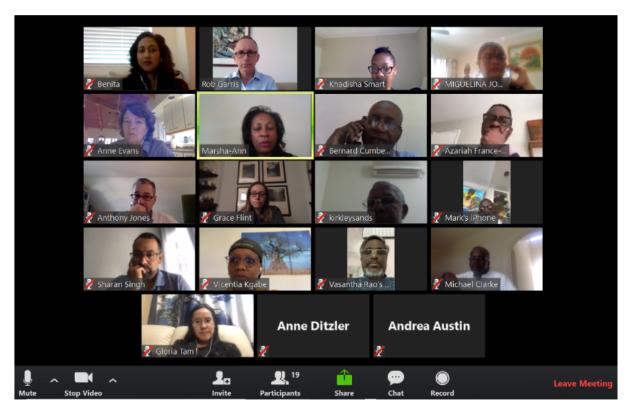Grantee Spotlight: Codrington College, Barbados

Codrington College is the oldest theological college in the Western Hemisphere, and one of the oldest tertiary institutions in the Latin America and Caribbean region, having opened in 1745. During the 276 years of its existence, the College has produced thousands of graduates from the West Indies and elsewhere who have distinguished themselves as archbishops, bishops, priests, administrators, educators, lawyers, doctors, and diplomats throughout the world. It primarily serves ordinands from the Caribbean, but also attracts students and visiting faculty from North America, the United Kingdom, and is building ties with Anglican seminaries and dioceses in Africa.
Secular institutions have worked on leadership development education for decades—primarily, but not exclusively, business schools. In recent years, seminaries around the world have been exploring how to integrate mindsets and practical skills of leadership into their traditional curricula and programming. Codrington College joined these efforts to integrate leadership innovation in faith communities by hosting "Leadership Innovation: Faith, Values, and Skills for the Church and the World" in 2020. This conference was an opportunity to build dialogue, exchange ideas, propose practical projects to integrate learning from secular and religious leadership development programs, and accelerate the implementation of leadership development in the context of theological education. It was a successful exercise in a last-minute pivot to convert a planned in-person conference to a virtual convening due to the COVID-19 pandemic.
Six of the participants are now Trinity grantee partners: ASHOKA, Luther Seminary, the Diocese of Kurunagala in Sri Lanka, College of the Transfiguration in South Africa, United Theological College in Bangalore, and St. Andrew’s Theological Seminary in the Philippines. The physical convening upgrades to the Codrington campus, part of the original plan for an in-person conference, provide Codrington with much stronger convening and teaching facilities. The technological upgrades allowed them to offer online courses beyond the seminary community and equipped them to offer continuing education courses for clergy in the Caribbean, including a class on “Transformational Servant Leadership.”







